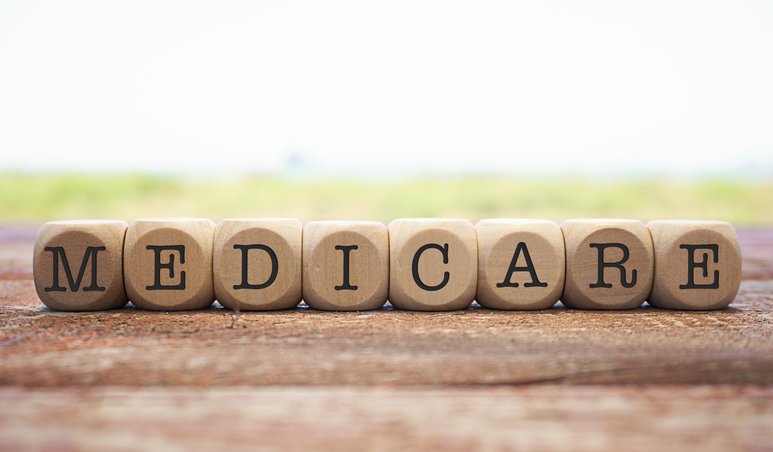The Top Resources for What Medicare Doesn’t Cover
While Medicare covers most health care services, there are some important things it excludes. If you’re new to Medicare or will soon be a participant, it’s wise to get to know what is and isn’t covered so you aren’t surprised by budget-busting bills down the road. In this article, we’ll share helpful information about the services often excluded from Medicare coverage and where you can find resources to help defray these costs.

Let’s start by reviewing the basics.
Most people are eligible to enroll in the Medicare benefits program three months before the month they reach age 65. Medicare Part A and Part B comprise Original Medicare. Part A, the hospital insurance portion, helps pay for inpatient hospital stays, surgery, hospice care, and short-term stays in skilled nursing facilities. Part B, medical insurance, helps pay for doctors' visits, outpatient care, and a limited number of preventive services and durable medical equipment. Part D is purchased separately and covers prescription medications. Participants in Medicare D must still pay a monthly premium and out-of-pocket costs. It's important to understand that the Medicare program still leaves some significant gaps in health care coverage.
Routine dental, vision and hearing care aren’t generally covered.
Medicare may pay for some of these services when it relates to another serious medical issue or when a person is at risk for certain diseases. As examples, it may pay for certain dental procedures if you are hospitalized during an emergency, and an annual glaucoma test is permitted for those who are at a high risk for the disease. Some Medicare Advantage plans, which are offered by Medicare-approved private insurers, include routine dental, vision and hearing care services, as well as prescription drug coverage. But these Medicare Advantage plans generally have a monthly fee in addition to the Part B Medicare premium, so it can get pricey for older adults on a fixed income. And they still don’t cover additional services that many elderly Americans require, such as hearing aids, glasses and dentures. Many seniors can’t afford costly Medicare Advantage plans or out-of-pocket fees for dental, vision and hearing care, so they end up going without these vitally important services.
Where can you go for help?
The biggest financial struggle for many seniors is paying for health care costs. If you or an elderly loved one requires financial assistance for medical care and other related services, here are some excellent low- or no-cost resources worth investigating:
Vision care services: EyeCare America, operated by the American Academy for Ophthalmology, offers eye care services for low income individuals through a network of 5,500 volunteer ophthalmologists. A vision care program and glaucoma testing for those age 65 and older is also available. New Eyes for the Needy is a national nonprofit that buys prescription glasses for the disadvantaged using vouchers obtained by local social service agencies. Many local Lions Club chapters offer assistance to people with severe vision impairment, as well.
Dental services: The Dental Lifeline Network is an affiliate of the American Dental Association and operates Donated Dental Services, a national volunteer network of 15,000 dentists and 3,500 dental labs. It provides free dental care to qualifying medically vulnerable seniors and those who are permanently disabled. Dental schools are an option for good low-cost dentures, care as many have clinics where students gain experience working on patients and making the prostheses. Visit the ADA's website for a listing of schools by state.
Hearing services: Help America Hear provides new hearing aids for qualifying low-income individuals. Its services are made possible through donations of time and medical equipment from health care professionals and hearing aid manufacturers. The Hearing Industries Association, representing hearing aid manufacturers, suppliers, distributors and audiologists, has published an extensive financial assistance guide for who require hearing aids. It includes financial assistance programs offered by nearly 30 organizations, including eligibility information.
“You Gave, Now Save”: This comprehensive guide from the National Council on Aging lists numerous free or affordable services for much of what Medicare doesn’t cover. Offered by colleges, non-profits, and professional associations, the directory shares valuable tips for locating resources nationwide. In addition, readers can find benefits related to food, housing and utilities, nutrition, transportation and more.
Free clinics: The National Association of Free Clinics website lists local clinics across the U.S. that offer no-cost health care and dental care for the economically disadvantaged.
Make your life as a senior the best it can be. It’s smart to head into your Medicare years armed with knowledge so you can avoid unpleasant financial surprises. Everyone’s situation is a little different, but numerous assistance programs do exist to help those who need it.
At Vaughn Greene Funeral Services, we strive to provide the best support and personal attention possible to you, your family, and our community. If we can be of service in any way, please contact us.
About Vaughn Greene Funeral Services: For more than 20 years, Vaughn Greene Funeral Services has been providing a ministry of care to Baltimore’s African American community. As a leading local, minority- and family-owned provider, we promise to provide our highest level of service and respect to families who entrust us to honor their loved one. For more information, please call us at 410.655.0015 or visit us online at https://vaughncgreene.com/.







Comments